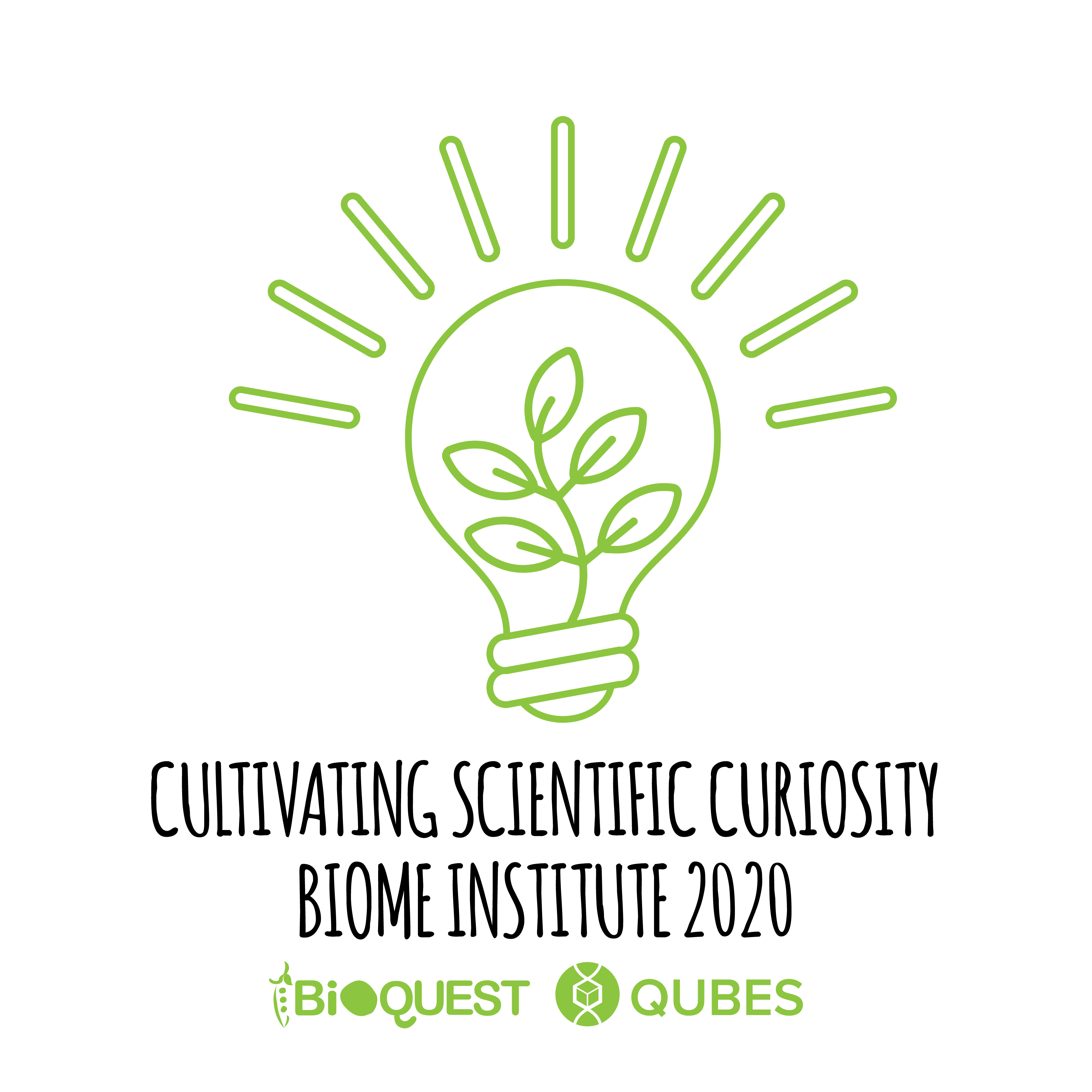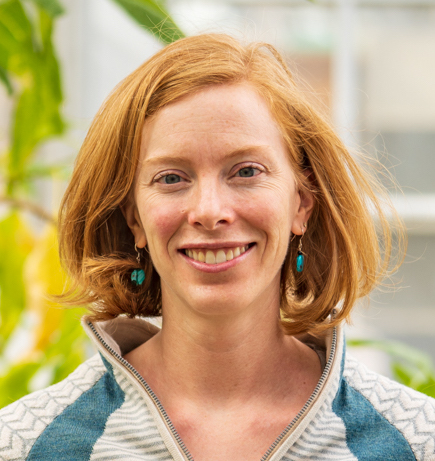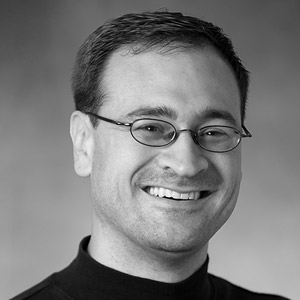Cultivating Scientific Curiosity
Speakers
Fall Speakers
Tuesday, September 15
12 pm ET / 9:00 am PT
Davida Smyth
Texas A&M San Antonio
Very Irish, Microbe lover, Researcher, Educator
More about me:
Davida Smyth is an Associate Professor of Microbiology at Texas A&M University in San Antonio. There she conducts research with her undergraduate team in the area of comparative microbial genomics and evolution, studying Staphylococcus aureus from animals and from humans, and is researching the role of the built environment, wastewater, and anthropogenic activity in driving antibiotic resistance, a major global health threat. She also engages in pedagogical research on improving civic and scientific literacy in biology and integrating authentic research into the curriculum to improve student engagement and success in science. She is a Senior SENCER Leadership Fellow and PULSE Fellow and Ambassador. She is Deputy Director of the National Center for Science and Civic Engagement.
Presentation
Transforming your CUREs with SENCER
Version: 1.0
Transforming your CUREs with SENCER
SENCER (Science Education for New Civic Engagements and Responsibilities) is the signature initiative of the National Center for Science & Civic Engagement, the project is focused on empowering faculty and improving STEM teaching and learning by making connections to civic issues. The international SENCER community is composed of professionals, informal and formal educators, and administrators in K-12 and higher education institutions. Notably, SENCER has been recognized as a community of transformation.
My presentation will describe examples of ongoing actions that have been catalyzed by SENCER, helping individuals, populations, and communities to improve the educational outcomes for students, professional development for faculty, and support for administrative initiatives particularly in the areas of civic and scientific literacy. SENCER has been leveraged to transform the curriculum, bridging the divide between the disciplines in a variety of institutional contexts. Most notably SENCER has been integrated into CURE courses, helping students tackle issues of civic import to them and their communities, while demonstrating the power and limitations of science.
Tuesday, September 29
1 pm ET / 10:00 am PT
J. Phil Gibson
University of Oklahoma
I am a Professor in the Department of Biology, and the Department of Microbiology and Plant Biology. I am also Associate Director for Education at the Kessler Atmospheric and Ecological Field Station. I have taught intro biology more times than I can remember (I think I am at 70+ times), but I still love it. Although there will be challenges, I am looking forward to teaching an online lecture to a very large class this fall.
What Joey Ramone Taught Me About Pivoting to Online Teaching
In March 2020, many of us experienced an unprecedented pivot to online teaching that upended many established lesson plans and classes and left us wondering how we would transition to an online classroom where those activities and assessments just wouldn't work. When I wasn't pondering that challenging topic, I indulged in exploring the history of 1970's music during my free time. Somewhere between the Ramones and the history of CBGB's. I found some ideas for how I need to think about my classes now and how I can assess my students effectively. Keep it simple, keep it focused, and keep it full of passion."
Friday, October 16
1:30 pm ET / 10:30 am PT
Gita Bangera
Bellevue College
Dr. Bangera is the founding Dean of the RISE Learning Institute, developing it from concept to successful implementation to bring high impact practices such as Research, Project, and Service based learning to students across all disciplines at Bellevue College. She has also served as the Interim Vice President of Instruction and Acting Co-President of Bellevue College. She leads a team of faculty and staff in designing and constructing a state-of-the-art makerspace and the predesign of the Transdisciplinary Innovations Center.
Obtaining more than $1M in grant funding from the National Science Foundation, Dr. Bangera was also helped obtain state funding for almost $1M in state-of-the-art lab equipment. She is one of 39 PULSE leadership fellows impacting science education at the national level. She is the director of the ComGen project that has created a community of practice for Classroom based Undergraduate Research Experiences (CUREs) with faculty from 27 higher education institutions in Washington. She is currently working with other leaders in the state to develop a statewide undergraduate research consortium.
Dr. Bangera is also an inventor and technical consultant 46 issued patents and over 110 patent applications and a small business owner.
Previously Dr. Bangera was a Senior Scientist at Combimatrix Corporation and conducted Post-doctoral Research at Harvard Medical School, University of Washington Medical School, and University of Copenhagen. She received her doctorate in Microbiology at Washington State University, Master’s in Biology from Carnegie Mellon University and a Master’s in Microbiology from University of Mumbai.
Taking Undergraduate research to scale across the campus and across the state - an equity perspective
Undergraduate Research is an essential tool in the engagement, retention and success of students in the 21st century. Bringing these experiences into the classroom is key to democratizing research and in creating an inclusive environment in STEM for students from minoritized populations. In this presentation, Dr. Gita Bangera Dean of the RISE Learning Institute (for Research Innovation Service and Experiential Learning) and the Principal Investigator of ComGen (NSF-funded) will share the journey of creating a campus culture of incorporating research into the curriculum and of building a faculty community of practice and the current attempts to create a state wide undergraduate research consortium.
Thursday, October 29
1:00 pm ET / 10:00 am PT
Pat Marsteller
Emory University
Pat Marsteller directed the Emory College Center for Science Education and is a faculty member in the department of Biology at Emory. She studied evolution of animal behavior for her MS degree at University of South Carolina and evolution and quantitative genetics for her PhD at the University of Florida. She worked with alligators for her MS thesis, investigating whether they could use the sun, the moon and the stars to navigate. Her dissertation research focused on a quantitative genetic analysis, using with fruit flies as a model system, to investigate genetic and environmental influence on life history patterns and traits such as longevity and quantity and timing of reproduction. She has taught courses evolution, Darwin and the idea of evolution and many other courses over her 30 years of college teaching. She also works with college and pre-college faculty on developing curriculum materials and on using active learning strategies in the teaching of science and mathematics. She is the PI of the ScienceCasenetwork and NeuroCaseNet and a helper on HITS and Molecular CaseNet.
Pat’s grand project is to prepare Faculty of the Future to teach well, to be creative, to be excellent mentors. She believes that we all have a responsibility to educate the public about science. Her other grand project relates to increasing diversity in science...She is in charge of special programs to increase success for underrepresented groups, women and first genration students at undergraduate, graduate, postdoc and faculty levels. support for these initiatives comes from NSF, HHMI, and NIH. She is co-PI of the Emory Initiative for Maximizing Student Development project, among many projects that support student research.
Draft Undergraduate STEM Education 2040: An Optimists Perspective
The intersecting crises of 2020 (covid, antiracist protests and climate change) finally led faculty groups and funders to a social justice agenda for STEM education. Thousands of faculty read Ibram Kendi’s How to be an Antiracist and began to realize that open education resources (OER) and open pedagogy (OP) were needed to address the racial and ethnic disparities in health, impacts of climate change, and institutional practices. A revolution began!
Graduate and postdoctoral programs added Social Justice, Equity, Diversity and Inclusion to professional development programs. NSF reinstated the GK12 program and created a new Graduate-Undergraduate curriculum development program. Institutions moved from general statements about social justice and serving all students to investing in reward systems and data tools to assess progress toward a just system that serves society. All types of institutions, community colleges, liberal arts institutions and research focused institution have over these years established networks and partnerships and formal transfer agreements. Faculty tenure and promotion guidelines were revised to include public scholarship and reflection on open pedagogies and professional development in applying social justice principles. Discipline based education faculty were hired (on tenure track) in nearly every department. Since that watershed year our faculties have become more diverse and our curricula have changed.
The movement to integrate research into STEM courses developed into a movement to include students as co-creators of curricular materials. Faculty worked together across departmental boundaries to assess content, curricular frameworks, and applications of each course and program to society. Science literacy, data literacy, and application to social issues took priority.
Revised materials called for all people to be represented in texts and OER materials. and current research.
As a result, now in 2040 students not only feel welcomed as learners but enabled to be content creators and researchers from the first course. From the first course, students now learn to critique and evaluate knowledge claims. Our STEM courses are better coordinated and they incorporate visualization, research design and models, but they also examine the ethics of scientific practices and the social justice implications of historical and future science and application. Our faculties are more diverse and representative and thus constantly bring new perspectives to our teaching and research missions.
Our classrooms are now more open spaces that support the evidence based active learning practices and enable collaborative teams to create new knowledge. Our institutions intersect closely with local communities and our students investigate and solve problem with local community groups.
From the very first course, we teach students to think like scientists, to evaluate and weigh evidence, to communicate clearly and to place scientific data in context. Instead of focusing on science as a body of knowledge, we allow students to inquire, investigate and communicate. Inquiry-based approaches such as problem-based learning (PBL) and investigative case-based learning (ICBL) have documented success in enhancing conceptual understanding and increasing skills in problem solving, critical thinking, communication and self-assessment. By using complex, authentic problems to trigger investigation in lab and library, our students develop critical thinking, problem solving, and collaborative skills. These methods allow students to experience science integrated with other disciplines such as mathematics (graphs, statistics), history (social, economic and political context of the issue), and language arts (conveying research results) and enhance their capacity for creative and responsible real-world problem solving. Inquiry science courses integrate ethical dimensions of science. Debates on cloning, DNA testing, limits of prediction, and potential perils as well as benefits of science deepen understanding for all students. Combining such approaches with practice in communicating science to different audiences creates engaged scholars and a scientifically literate public.
We have made great strides in moving from incremental interventions to systemic, structural and lasting change. Our majors now provide a more diverse STEM workforce and generate new ideas that are improving health, quality f life and discovery for all peoples and parts of the globe. Our non-majors leave still loving and exploring science and they learn to critique and evaluate knowledge claims about health, vaccines and evolution. Our STEM courses are better coordinated and they incorporate visualization, research design and models, but they also examine the ethics of scientific practices and the social justice implications of past
We have not yet solved all the inequities in K-12 or undergraduate education or in health disparities in local communities, but we have come a long way. The experiments in education are now bolder, the future looks more just, more equitable and more creative.
OK...How's that???
Prior to arriving at Emory in 1990, Pat taught at large state universities and tiny liberal arts colleges. This experience gave her the opportunity to teach nearly every course in Biology. She loves teaching because transmitting the joys (and trials) of the process of science to students gives them the tools for lifelong learning and discovery. Science is not merely a body of accumulated facts and theories, but an exhilarating process of discovery. Good teachers are constant learners, inventing, creating and discovering new ways to facilitate learning. As her friend John Jungck says, “teachers must move from the position of sage on the stage to guide on the side.” Learning is an active process- students are not vessels into which we pour our accumulated wisdom; they are participants is generating, constructing and linking knowledge by placing new content in the context of what they know and by developing critical analysis skills so that they can generate reasonable hypotheses, test them, analyze carefully and draw reasonable conclusions. Good teachers and good students should “Question Authority” as the bumper sticker on her door suggests. Don’t just believe! Delve into it, connect, apply, and make it your own!
Pat is a member of the Biology faculty and the NBB faculty and directs the Hughes Undergraduate Science Initiative and our Emory College Center for Science Education. She is the oldest of 11 kids. She is married to Fred Marsteller, who is a consultant in Biostatistics and Research Design. Her son Sean was the founding Director of LearnLink. He and his wife now live in Canada.
Finding Money for your idea.
You have fabulous ideas for your BIOME project. A CURE, a summer research experience, an Intro to Research course, a Social Justice Outreach program, a curriculum project that introduces students to diverse scientists. This session will introduce several sources and give some tips on funding your idea. We will cover NSF RCN, IUSE, and REU grants. We will introduce some innovative ways to fund ideas thru NIH R25s. Please consider answering this brief questionnaire so the panel can bring you specific ideas.
Panel members include: Chris Beck, Jeff Olimpo, Erin Shortlidge, and Davida Smyth
Launch Speakers
Failing (in order) to succeed: Exploring how students cope with science failures in research-based courses
Dr. Lisa Corwin is an Assistant Professor at the University of Colorado, Boulder. She is lead PI of the Research in Ecology and Evolution Education for Action and Change (RE3ACH) Lab. Her research interests include investigations of how research-based laboratory learning increases students ability to cope with scientific challenge and failure, tolerance of ambiguity, and scientific civic engagement. She is also keenly interested in supporting community college faculty in their own biology education research endeavors. Prior to coming to CU Boulder, Dr. Corwin received a PhD in Plant Biology from the University of California, Davis where she studied cottonwood ecophysiology in connection with maintaining riparian buffer zones around critical agricultural waterways. She then worked with Erin Dolan's group at the University of Georgia, Athens and the University of Texas at Austin to characterize and study the effects of course-based undergraduate research experiences. Dr. Corwin is passionate about inclusion and equity and hopes to contribute to a resilient, diverse, and persistent scientific workforce through her work in biology education.
Please read, "FAIL Is Not a Four-Letter Word" before attending the presentation.
Mentoring of Deaf Students In Undergraduate Research Experiences: Research and Recommendations
Derek C. Braun, Ph.D. is a Professor in the Department of Science, Technology, and Mathematics at Gallaudet University.
As a graduate student, Dr. Braun was a NIH National Service Research Award (NRSA) fellow. His graduate research at the University of Maryland was on the genetics of lipooligosaccharide antigenic variation in the bacterium Neisseria gonorrhoeae. After graduation from the University of Maryland, Dr. Braun worked at the National Cancer Institute, NIH, from 2002 through 2006, where he studied signal transduction pathways important in cancer and pain. Dr. Braun was awarded a provisional patent for developing a fluorescent recombinant biotechnology tool for high-throughput screening of potential anticancer drugs.
In 2006, Dr. Braun designed and began directing the Molecular Genetics Laboratory, Gallaudet's first biological research laboratory. Undergraduate students and summer interns perform research in the laboratory alongside deaf faculty.
As a result of working with students in his lab, Dr. Braun, along with Cara Gormally and M. Diane Clark began a fruitful collaboration identifying the variables important for effective mentoring of deaf students in undergraduate research experiences.
As one of the very few Deaf geneticists in the world, Dr. Braun was interviewed and featured in "Scientists with disabilities: Access in all areas" in Nature, "Science in Sign Language" in ASBMB Today, and in All in the Mind, a radio show by Australian Broadcasting Corp. He also presented at TEDxMidAtlantic 2013.
Please read "The Deaf Mentoring Survey: A Community Cultural Wealth Framework for Measuring Mentoring Effectiveness with Underrepresented Students" before attending the presentation.


